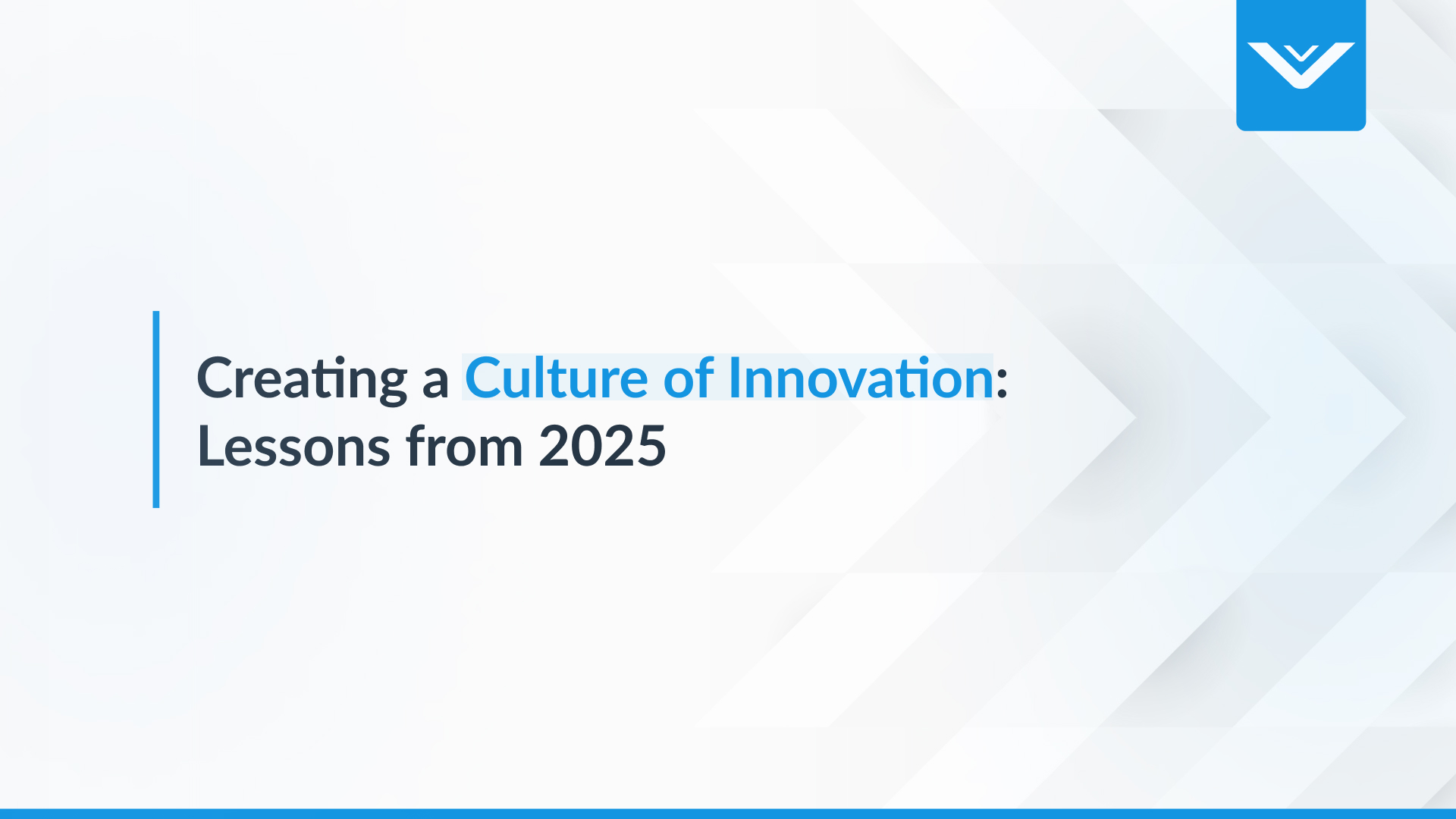

We're spotlighting Vijay Panati, Deputy CIO at the Probation Department of Los Angeles County. Hear from Vijay on his career journey, advice, and insights on new technologies.
Council Spotlight: Vijay Panati
We love to spotlight our Council Members and share brief insights into the person behind the role. As our Innovation Advisory Council spans twenty-three cities across three continents, we have an incredible and diverse group of Council members leading companies of all sizes and industries. In this spotlight, we caught up with Vijay Panati, Deputy CIO at the Probation Department of Los Angeles County
The Los Angeles County Probation Department is the largest probation department in the United States, with more than 6000 employees and an operational budget of almost a billion dollars. The department serves both Adult and Juvenile populations within LA county. With a vision to rebuild lives and provide for healthier and safer communities, the department strives to provide a care-first approach to probation services. It is keenly interested in enhancing public safety, ensuring victims’ rights, and effecting positive probationer behavioral changes that benefit society.
Vijay is an accomplished IT leader with over 20 years of in-depth experience spanning multiple industries. He has worked in leadership positions at Tier 1 research institutions, financial and sales divisions of a Fortune 100 Automotive company and is now leveraging his vast experience to drive value at a public safety organization.
Can you give us an abridged story of the journey through your career and how you got to your current role?
I like to describe my journey as one where I got to be involved with all facets of IT in most types of industry. I’ve held leadership positions in Academia, the Private sector, and (now) the Public sector. This wide range of experience in a variety of industries aids me when it comes to solving problems in the ever-changing landscape of the current world.
I began my IT career at the University of Southern California. After almost a decade at USC, I moved on to Toyota, where I served at both the financial services and the motor sales division. It was at Toyota where I honed my formal process improvement and problem-solving methodology skillsets.
I currently serve as the deputy CIO for Los Angeles County Probation, overseeing a large portion of Information Technology for the organization. I feel that my prior experiences in just about all components of IT in various sectors have given me the right skill set to manage and develop the IT organization here. I am developing the culture, process maturity, and technical skillsets of the team to prepare them for the challenges of the years ahead.
Innovation means many different things to many different people; what does it mean for you?
Innovation comes down to driving value through efficiency or a transformation. It is about doing something better or providing something new. Either way, it is about creating value with limited resources in a creative manner. While moonshot efforts in innovation transform, revolutionize, or even create a new industry, we should never forget the value of incremental innovation that can, over time, drive sky-high value.
How do you see the rapid evolution of technology impacting your industry in five years?
Especially after the challenges of the recent past and the incredible upheaval brought upon by the Covid pandemic, I see a faster move to automation and data-driven decision making. There is enormous pressure to deliver even more value with lesser resources which is primarily achieved with automation and data-driven “intelligent” decision making. I continue to see Artificial Intelligence and Machine Learning solutions that evolve and provide deeper, richer, and more meaningful solutions to business problems.
What’s on your radar for new trends and technologies that you think will accelerate innovation for you and your company?
The key technology that would help us accelerate innovation would be true low code/no-code platforms that help end-users create and manage their own workflows. Most organizations have a ton of workflows that define how they run their operations. Any technology that streamlines and optimizes those workflows would help reduce “process friction” and free up people to focus on delivering actual value and innovation.
What’s been one of the most significant challenges you’ve faced over the course of your career?
While it is said that the only constant thing in life is change, driving that very change is one of the most significant challenges that I have faced over the course of my career. However, when I am able to effect that change, it is one of the most rewarding and fulfilling times of my career. So, there is a bright spot to that challenge. However, it should be noted that the focus shouldn’t be just about change, but it should be about the “right” change. Inertia is strong in us, and it takes a lot to get us to make a meaningful change. So, the effort must always be carefully vetted to ensure value.
Setting and achieving attainable goals is an art as a leader. How do you set goals for your team?
My first goal when I set out to set goals for my team is to win their hearts. This requires articulation of not what must be done, but why! I have observed that once I have won my team’s heart, the rest of the steps just fall into place. And once I have their heart, I let the team set the goal. If I have done my job correctly, they usually set stretch goals that move the bar of the final outcome even higher than any expectations I set upon them.
The saying that culture eats strategy, technology, etc., for breakfast or lunch is well known. Do you agree with that? If so, how do you work on building a better culture at your company?
Yes, yes, and definitely yes. The right culture drives the right mindset. The right mindset drives the right results regardless of any obstacles in its path. Driving the right culture is simple but requires a lot of continuous effort and discipline. It basically involves:
- Setting a clear example and articulation of expectations
- Communicating those expectations (and importantly, the logic behind the expectations) clearly, continuously, and consistently across the board
- Continuously evaluating the state of culture in the environment and adjusting approach to stay with the core tenets of the culture expectations, and
- Driving outcomes that reward the right behaviors
Setting and maintaining the right culture is not a one-time activity. It is a continuous process that should occupy a good portion of an effective leader’s strategic planning time.
What are you most proud of in either your work or personal life?
Some of my proudest moments revolve around the successes of my team and the folks I have mentored. It is very fulfilling to make a positive impact on even one individual in a way that transforms their life. While I’ve had many traditional success stories and accomplishments, my best memories are when a team member comes up to me to thank me for helping change and improve their life.
What kind of leader would you describe yourself as?
I consider myself a Relationship leader through and through. Relationships center around trust. I focus on developing a team that works well together for a shared common goal and allows each team member to grow into the best that they can be. I don’t consider myself successful unless my team feels fulfilled and satisfied.
What is one piece of advice you’d offer the next generation of individuals looking to grow within the technology space as a leader?
In addition to developing a depth of technology knowledge, focus on people and process-related skills even more. Having a well-rounded skillset will allow one to develop holistic solutions that are innovative and multi-dimensioned. Technology must only be a tool in your toolbelt, not the only tool.
Do you build in time throughout the year for continuous learning? If so, can you speak to the value of continuously upskilling yourself?
It is incredibly important to upskill. I have an insatiable thirst for knowledge, and I can, and do, spend hours, and sometimes even days, researching a topic that catches my attention. I have a broad range of interests which is also important to note since I focus on a well-rounded skillset. I have been successful in situations when pitted against a technically superior competitor because of the breadth, and not just the depth, of my knowledge and capabilities. It is important to engage in continuous relevant upskilling exercises since the needs, and context, of organizations change with time and circumstances.
What’s your favorite non-professional activity that you love to do?
I LOVE to travel. If I could, I would travel all year round. I love to immerse myself in a new place and absorb the people, the culture, the history, the nature, and the food (not necessarily in that order). I believe that a habit of extensive travel has, in addition to the obvious benefit of enjoyment, an incredible impact on one’s perspective. This perspective provides unique insights and ideas that carry over to one’s professional life.
Spread the word.
Thousands of subscribers receive our newsletter every week breaking down what's happening across the technology community.
Join them today.
Keep Reading
.jpg)
Topic-Focused Innovation Advisory Councils: Year-End Insights
We finished up our 2025 Innovation Advisory Council calendar with three insightful, topic-focused sessions that revealed both the urgency and the opportunity ahead as companies seek to modernize responsibly and create lasting value.


Creating a Culture of Innovation: Lessons from 2025
Creating a culture of innovation means staying curious, supporting teams through uncertainty, and continuously raising the bar for what’s possible. The technology will keep changing. The pace will keep accelerating. But organizations that invest in their people and cultivate the right culture will always find their next summit and the energy to climb it.


.jpg)
